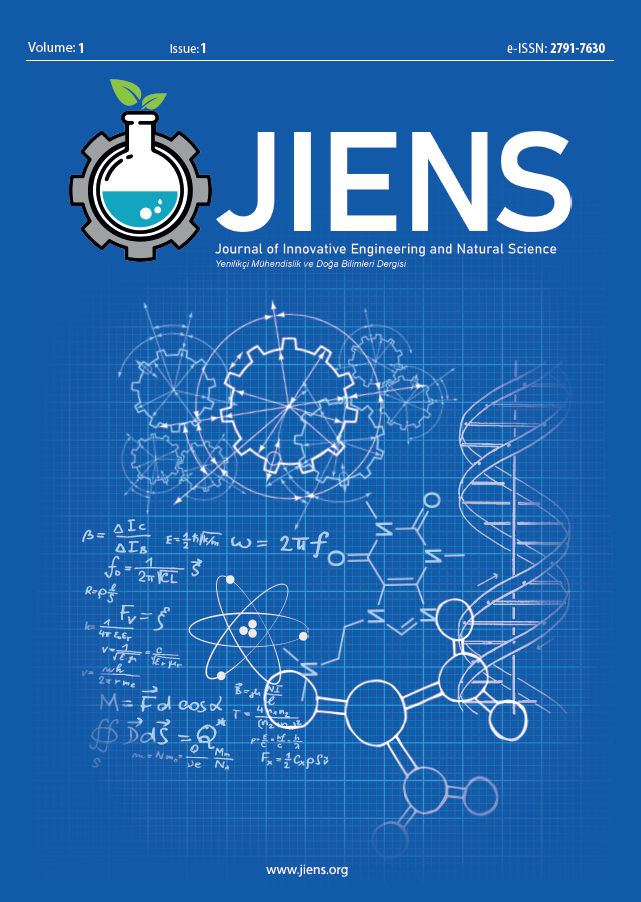Metalotermik FeMn üretiminde magnezotermik ve aluminotermik yöntemlerin karşılaştırılması ve redüksiyon sistemlerinin termodinamik modellenmesi
Author :
Abstract
|
Çelik malzemelerin dökümünde karşılaşılan zorlukların üstesinden gelmek ve mekanik özelliklerini geliştirmek için, ferroalaşımlar yaygın bir biçimde kullanılan malzemelerdir. Bu malzemeler genel olarak yüksek maliyet ve enerji gereksinimi olan yöntemler ile üretilmektedir. Bu çalışmada bu alaşımlardan biri olan FeMn alternatif bir metot olan metalotermik redüksiyon ile üretilmiştir. Redüksiyon sistemleri FactSage 7.1 programı ile modellenmiştir. Çalışmada demir kaynağı olarak Tufal ve Hematit, Manganez kaynağı olarakta MnO kullanılmıştır. Redüksiyon sistemlerinde indirgeyici olarak Mg ve Al kullanılmıştır. Deneysel çalışmalarda kullanılan Tufal üretilmiş çelik yüzeylerde soğuma esnasında oluşan demir oksitçe zengin yapıdır. Bu malzemenin geri dönüşümü önem arz etmektedir. Bu çalışmada malzeme hammadde olarak değerlendirilerek redüksiyon koşulları incelenmiştir. |
Keywords
Abstract
Ferroalloys are widely used materials to overcome the difficulties encountered in casting steel materials and to improve their mechanical properties. These materials are generally produced with methods that require high cost and energy. In this study, FeMn, one of these alloys, was produced by metallothermic reduction, which is an alternative method. The reduction systems are modeled with the FactSage 7.1 program. In the study, Millscale and Hematite were used as a source of iron, and MnO was used as a source of Manganese. Mg and Al are used as reductants in reduction systems. Millscale used in experimental studies is an iron oxide-rich structure formed during cooling on steel surfaces produced. Recycling of this material is important. In this study, the reduction conditions have been investigated by evaluating the material as a raw material
Keywords
- [1] Cota TG, Reis EL, Lima RMF, Cipriano RAS (2018) Incorporation of waste from ferromanganese alloy manufacture and soapstone powder in red ceramic production. Appl Clay Sci 161:274–281.
- [2] Ghafarizadeh B, Rashchi F, Vahidi E (2011) Recovery of manganese from electric arc furnace dust of ferromanganese production units by reductive leaching. Miner Eng 24(2):174–176.
- [3] Bafghi MS, Zakeri A, Ghasemi Z, Adeli M (2008) Reductive dissolution of manganese ore in sulfuric acid in the presence of iron metal. Hydrometallurgy 90(2-4):207–212.
- [4] Falodun OE, Oke SR, Okoro AM, Olubambi PA (2019) Characterization of cast manganese steels containing varying manganese and chromium additions. Mater Today Proc 28:730–733.
- [5] Cho S, Lee J (2008) Metal recovery from stainless steel mill scale by microwave heating. Met Mater Int 14(2):193–196.
- [6] Coetsee T (2018) MnO reduction in high carbon ferromanganese production: practice and theory. Miner Process Extr Metall Rev 39(5):351–358.
- [7] Surup GR, Trubetskaya A,Tangstad M (2021) Life cycle assessment of renewable reductants in the ferromanganese alloy production: A review. Processes 9(1):1–19.
- [8] Cerra FMA, Da Silva Lima MN, Araújo WS, Da Silva MJG (2019) Characterization and comparative analysis of corrosion resistance of 4 high manganese steels models in aqueous solution of NaCl. Mater Res 22(1):1–13.
- [9] Subhi AD, Abdulrazaq OA (2007) Phase Transformations of Hadfield Manganese Steels Eng Technol 25(6):808–811.
- [10] Yeşiltepe S, Buğdaycı M, Yücel O, Şeşen MK (2019) Recycling of alkaline batteries via a carbothermal reduction process. Batteries. https://doi.org/10.3390/batteries5010035
- [11] Yeşiltepe S, Şeşen MK (2020) Production of composite pellets from waste coffee grounds, mill scale and waste primary battery to produce ferromanganese; a zero waste approach. Acta Metall Slovaca 26(2):45–
- [12] Bugdayci M, Alkan M, Turan A, Yücel O (2018) Production of Iron Based Alloys from Mill Scale through Metallothermic Reduction. High Temp Mater Process 37(9–10):889–898.
- [13] Öncel L (2020) Production of Ferromolybdenum from Mill Scale via Aluminothermic Process. Sinop Üniversitesi Fen Bilim Derg 5(1):64–76.
- [14] Bugdayci M, Deniz G, Ziyreker C, Turan A, Oncel L (2020) Thermodynamic modeling and production of FeCo alloy from mill scale through metallothermic reduction. Eng Sci Technol Int0 J 23(5):1259–
- [15] Öncel L (2020) Production of ferronickel from mill-scale via metallothermic process. El-Cezeri J Sci Eng 7(2):824–834.
- [16] Turan A, Bugdayci M, Yucel O (2015) Self-propagating High Temperature Synthesis of TiB2. High Temp Mater Process 34(2):185-193.
- [17] Akkas B, Alkan M, Derin B, Onuralp Y (2010) Production of Zirconium Diboride Powder by Self Propagating High Temperature Synthesis. Adv Sci Technol 63:251–256.
- [18] Merzhanov AG (2004) The chemistry of self-propagating high-temperature synthesis. Journal of Materials Chemistry 14(12):1779–1786.
- [19] Odabaş ÖC, Buğdaycı M, Kan S, Turan A, Yücel O (2021) Effects of reductant type on the combustion synthesis of NiB. Solid State Sci. https://doi.org/10.1016/j.solidstatesciences.2020.106447
- [20] Murthy YI (2012) Stabilisation of expansive soil using mill scale. Int J Eng Sci Technol 4(2):629–632.
- [21] Yucel O, Demirci F, Turan A, Alkan M (2013) Determination of direct reduction conditions of mill scale. High Temp Mater Process 32(4):405–412.
- [22] Rajshekar Y, Pal J, Venugopalan T (2018) Mill scale as a potential additive to improve the quality of hematite ore pellet. Miner Process Extr Metall Rev 39(3):202–210.
- [23] Martín MI, López FA, Torralba JM (2012) Production of sponge iron powder by reduction of rolling mill scale. Ironmak Steelmak 39(3):155–162.
- [24] TURAN A, BUĞDAYCI M (2020) CoB Ön Alaşımlarının Alüminotermik Redüksiyon Yöntemiyle Üretilmesi ve Termokimyasal Modellenmesi. El-Cezeri Fen ve Mühendislik Derg 2020(2):436–447.
